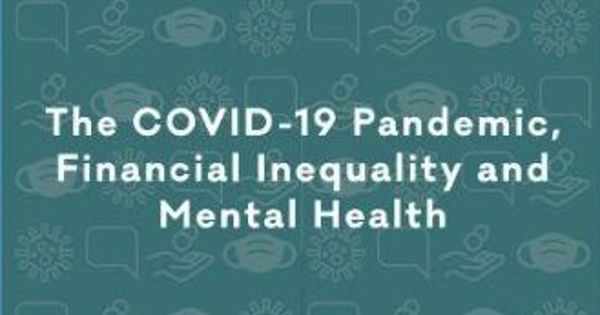Job insecurity and financial concerns increased mental stress during a pandemic
The epidemic of Coronavirus disease in 2019 (COVID-19) has had a negative effect on global economies and jobs. According to a recent report, work instability and financial concern was correlated with elevated symptoms of depression and anxiety for people who work after the COVID-19 pandemic. Conversely, forced work cuts and unemployment have repeatedly been found to have a serious and long-term effect on mental health.
In mid-April 2020, the national unemployment rate hit 14.7%, the highest since the Great Depression. Even if the coronavirus pandemic does not affect young adults as badly as it does the elderly, the economic effects of the pandemic, accompanied by work cuts, have triggered common signs of anxiety and depression in young adults. Forty-one million American employees filed for unemployment between February and May 2020.
A new study on coronavirus and its impact on the young generation established a strong link between employment insecurity in COVID-19 times and growing mental health issues in the United States.
Coronavirus Disease 2019 (COVID-19) pandemic can be stressful to humans. Fear and fear over a potential illness and what could happen can be daunting and can trigger intense feelings in adults and infants. Unprecedented unemployment rates do not, however, have an impact on the unemployed. According to the results of the UConn School of Nursing recently reported in the Journal of Occupational and Environmental Medicine or JOEM, employment instability and financial concern was correlated with elevated symptoms of depression and anxiety in people who working after the COVID-19 pandemic. The study also showed that signs of anxiety and depression were widespread among young adults.
Mental health is an important part of overall health and wellbeing. It affects how we think, feel, and act. It may also affect how we handle stress, relate to others, and make choices during an emergency. “The impact the virus and the pandemic are having on the economy and employment is not surprisingly taking a big toll,” says Natalie J. Shook, a social psychologist, associate professor in the School of Nursing, and principal investigator for the study.
The findings are part of a year-long study of how actions and social perceptions change and what causes affect these changes as people in the United States experience the danger of widespread disease. Supported by a grant from the National Science Foundation, the research monitors the well-being, emotions, and behavioral behaviors of about 1,000 people across the United States, and more than 18 surveys of participants have been completed since March. A study at the University of Connecticut highlights how this unsafe situation impacts not just those who are out of employment but also those in work. The convergence of work instability and related financial problems combines to create a rising epidemic of depression and anxiety.
The study asked participants to recognize signs of anxiety by asking whether they were stressed, upset, or on the verge, or whether they were unable to avoid or control their anxiety. They were also questioned about the nature of their financial concerns—how concerned they were about their jobs and financial condition, whether they expected their financial situation to worsen over the next 12 months, and whether they had the resources to provide food and accommodation for their families over the next 12 months. It can be stressful to be isolated from others, whether you have or have been subjected to COVID-19. Every person who finishes a time of insulation at home may feel differently about it.
Most study participants indicated some degree of uncertainty about the impact of COVID-19 on their jobs. Although previous studies have related large-scale shocks, such as recessions and pandemics, to poor mental wellbeing, researchers note that their analysis substantially expands on these associations by demonstrating independent ties between greater financial issues with higher anxiety symptoms, and increased work instability with higher depressive symptoms, based on demographics, health, and related reports.
Shook and her study team claim that employers will play a vital role in improving their employees’ mental health by understanding the heightened distress that workers feel when their job security is at stake during the pandemic.
“Our results demonstrate the potential adverse consequences that job insecurity and financial concern have on employee mental health,” the researchers report. “Based on these observations, for people with depression symptoms during a pandemic, it may be especially important for managers to be aware to attempt to mitigate feelings of insecurity for workers, as well as to instill confidence or agency in employees. Employers with anxiety symptoms may try to alleviate financial concerns by encouraging employees to continue to work.















